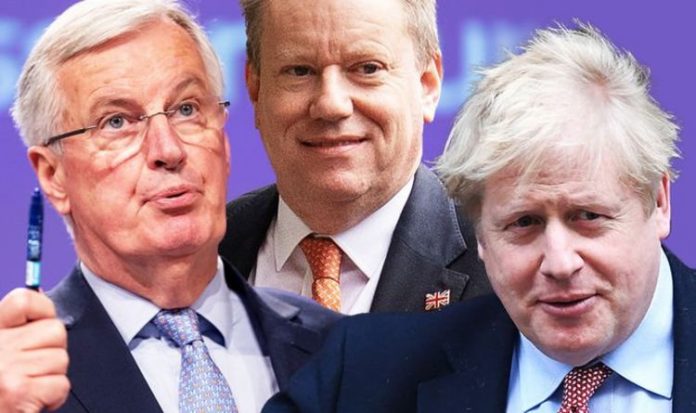Prime Minister Boris Johnson is looking to override the withdrawal agreement in a move that could lead to a no deal Brexit. The Internal Market Bill passed its first hurdle in the Commons on Tuesday as MPs voted in favour by 340 votes to 263. It addresses the Northern Ireland Protocol – an element of the withdrawal agreement designed to prevent a hard border returning to the island of Ireland. The bill seeks to give powers to UK ministers so they can modify or “disapply” rules relating to the movement of goods – Northern Ireland Secretary Brandon Lewis admitted that this could break international law.
The move has infuriated the EU, who have also held out on their own demands as trade talks stall.
Brussels has demanded access to UK fishing waters, threatening to deny London access to European markets if the request isn’t met.
Both the UK and the EU have refused to budge on their demands, but Mr Barnier confessed that Brussels could grant concessions late on in negotiations.
He said in June: “Agreement of this type, such important agreements, are always agreed at the last minute, if there is agreement.
“We’re going to need the coming three of four months, even if we work more intensively in July, August and September, we’re going to go right up to the line in October to find an agreement.
“This means negotiations will need now some extra political momentum. I’ve hoped that the British side will be given full leeway to negotiate on their side.
“We have very strong positions on both sides. The EU wants the status quo. The UK wants to change everything.
“If we want an agreement we will have to discuss somewhere in between those two position, we are prepared to discuss what needs to be discussed.”
Mr Johnson may be encouraged when looking at the EU’s history of trade negotiations.
READ MORE: EU divided: Italian and Dutch diplomats’ explicit row
The EU eventually conceded to the request upon the deal’s signing in late June 2019.
While the preliminary agreement for the deal has been agreed, it has not been signed, finalised or ratified.
The deal, known as the European Union-Mercosur free trade agreement, would see Brazil, Paraguay, Uruguay and Argentina open their markets to the 27 EU member states, and is set to be ratified this year.







